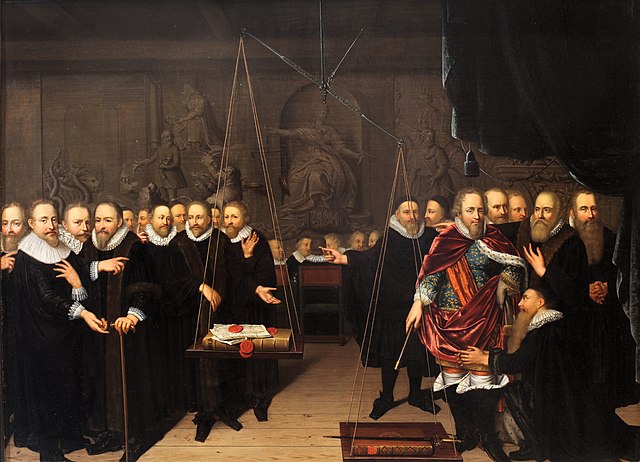Wesleyan theology, otherwise known as Wesleyan–Arminian theology, or Methodist theology, is a theological tradition in Protestant Christianity based upon the ministry of the 18th-century evangelical reformer brothers John Wesley and Charles Wesley. More broadly it refers to the theological system inferred from the various sermons, theological treatises, letters, journals, diaries, hymns, and other spiritual writings of the Wesleys and their contemporary coadjutors such as John William Fletcher.
Memorial to John Wesley and Charles Wesley in Christ Church Cathedral, Oxford
Jacobus Arminius was a 17th-century Dutch theologian
John Wesley was an Anglican clergyman
Methodists believe Jesus Christ died for all humanity, not a limited few: the doctrine of unlimited atonement.
Arminianism is a movement of Protestantism initiated in the early 17th century, based on the theological ideas of the Dutch Reformed theologian Jacobus Arminius and his historic supporters known as Remonstrants. Dutch Arminianism was originally articulated in the Remonstrance (1610), a theological statement submitted to the States General of the Netherlands. This expressed an attempt to moderate the doctrines of Calvinism related to its interpretation of predestination.
Portrait of Jacobus Arminius, from Kupferstich aus Theatrum Europaeum by Matthaeus Merian in 1662
Portrait of Simon Episcopius, (Anonymous)
Portrait of John Wesley, by George Romney
Allegory of the theological dispute between the Arminianists and their opponents by Abraham van der Eyk (1721), allegorically represents what many Arminians thought about the Synod: the Bible on the Arminian side was outweighed by the sword, representing the power of the state, and Calvin's Institutes on the other.








